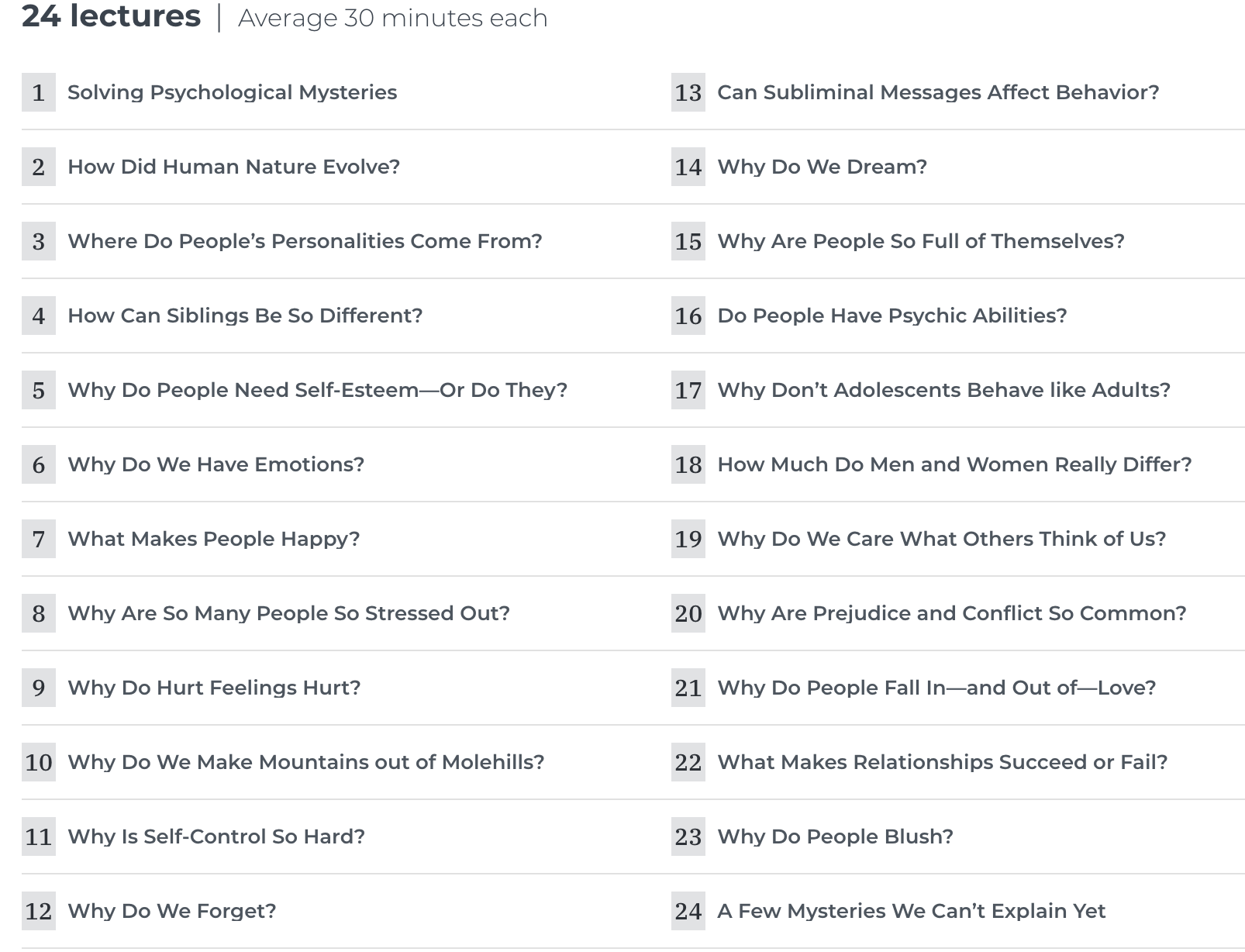Title: Understanding the Mysteries of Human Behavior
- By Professor Mark Leary, Ph.D. Duke University
-
URL
- many of the answers to the puzzles of human behaviors, thoughts, and emotions lie in three broad themes
- Evolution: In some cases, a behavior that is difficult to understand today makes sense when you consider the possibility that the behavior dealt with a particular problem our ancestors faced in the distant past.
- Self-awareness: No other animal can think consciously about itself with such abstraction as we can. Self-awareness is an important lens through which to view human behavior because much of what you do is influenced by your self-image, your future goals, and your concerns with what other people think, each of which requires abstract self-awareness.
- Culture: Often, we do odd things because our culture has taught us to. Many puzzling behaviors that appear inexplicable when seen through the eyes of one culture may be understandable when seen through the eyes of another.
- Every lecture of Understanding the Mysteries of Human Behavior examines a central question about human behavior. For examples
- Why do your feelings get hurt? Like physical injury, a loss of social connection compromises your well-being. The brain areas involved in hurt feelings from rejection overlap with the areas involved in the experience of physical pain. Neuroscientists believe that the social pain system was built on top of the older system that mediates physical pain.
- Why do you sometimes forget things? One explanation for forgetfulness holds that a memory trace in your brain has deteriorated over time. In fact, the brain appears designed to allow disused memories to become less accessible so that you’re not overwhelmed with memories that are unimportant or that interfere with the acquisition of new information.
- Why do you fall in love? Research suggests that romantic love has three components—intimacy, passion, and commitment. Neuroscientists studying the biochemical bases of love have discovered that adrenalin, dopamine, and other chemicals are responsible for physical attraction, the desire for closeness, energetic feelings, and other symptoms of being in love.
- Why do you blush? Many people think of blushing as a social signal that communicates a nonverbal apology for breaking some social rule. But why do we sometimes blush when we are complimented or praised? Research suggests that blushing is analogous to appeasement displays in other animals. Humans blush when we receive unwanted social attention—negative or positive.
- Of course, not all of the mysteries of human behavior have been completely solved.


